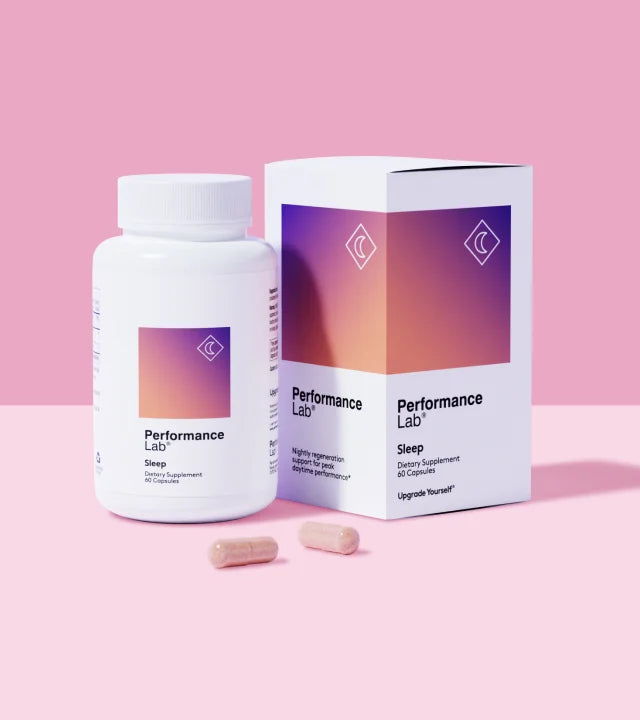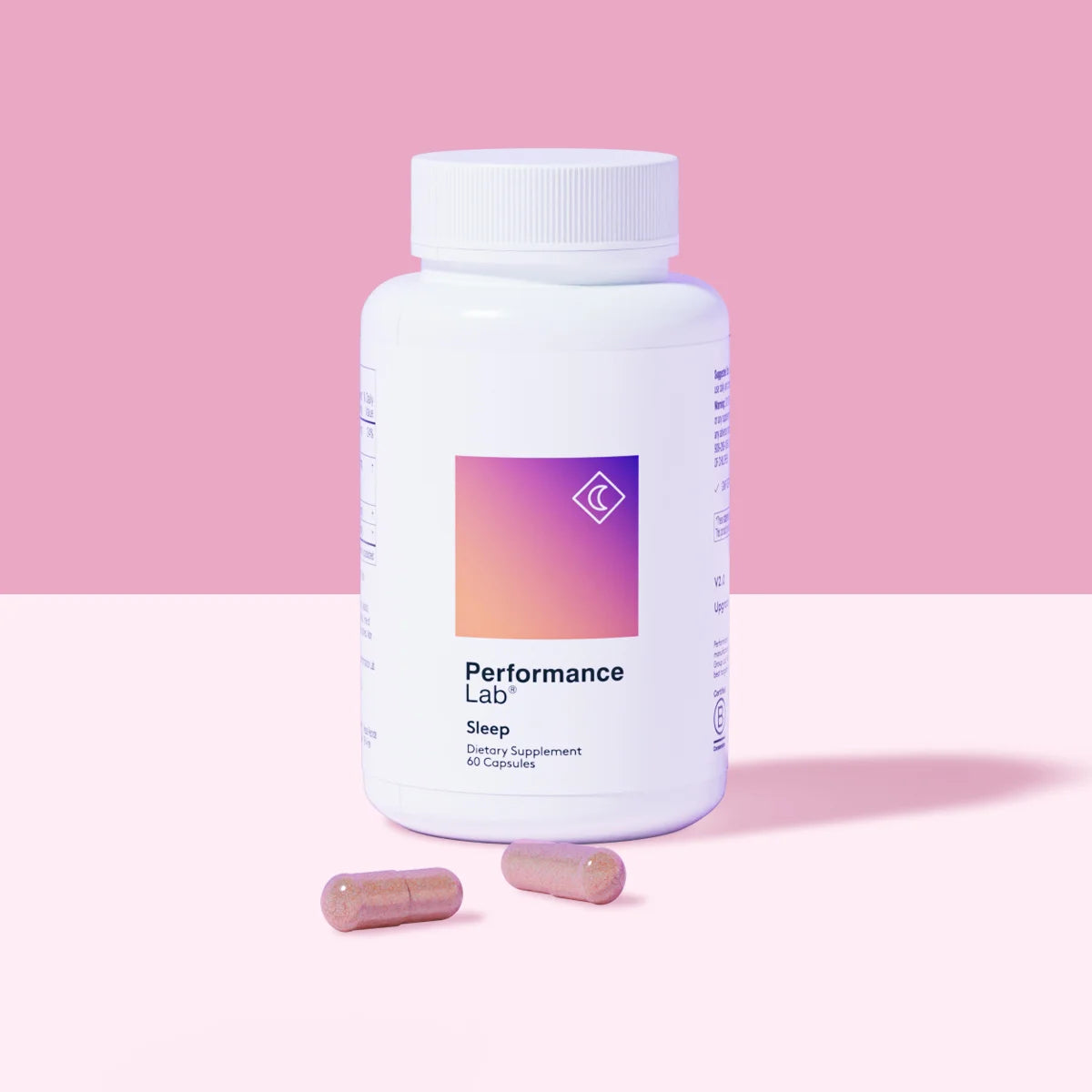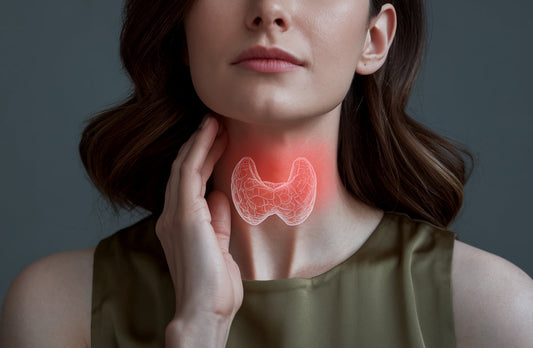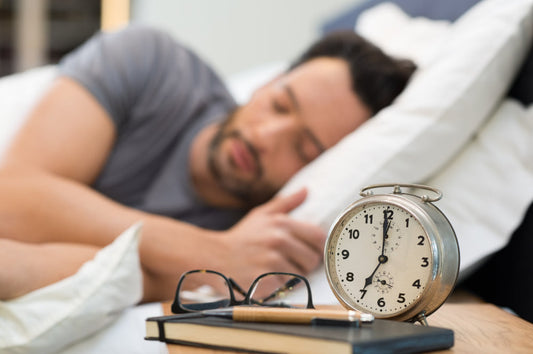Quick Answer: Yes, tryptophan can make you sleepy because it’s converted into melatonin, the sleep hormone. But the effect depends on many factors (like other amino acids, carbs, and timing), so eating a tryptophan-rich meal alone probably won’t knock you out. And even when you feel drowsy, tryptophan is not always the main reason. Read on to learn why.
When you think about tryptophan, what’s the first thing that comes to mind…
Turkey?
We knew it.
Most people think that the turkey feast you have on Thanksgiving dinner and the severe fatigue that follows is due to the presence of tryptophan...
...but that may not actually be what’s causing you to be in that so-called “food coma.”
Turkey contains tryptophan, but not enough to induce that level of fatigue. But that’s beside the point.
What you’re likely dying to know is why tryptophan makes you sleepy, so we’re going to tell you...
But before we take a deep dive, let’s understand what tryptophan is and how it relates to sleep.
Key Takeaways
- Tryptophan → Melatonin: Tryptophan is one of the nine essential amino acids and a precursor for 5-HTP, serotonin, and finally melatonin – the hormone tied to sleepiness and good sleep. [1, 4]
- Melatonin Drives Sleep: Peaks at night, drops in the morning, regulating your circadian rhythm. [5]
- Food vs. Supplements: Dietary tryptophan competes with larger amino acids from food to cross the blood–brain barrier. Supplements taken on an empty stomach reduce competition, which may improve its chances of supporting sleep. [1, 6, 8]
- Carbs Help: Eating carbs raises insulin, which helps tryptophan get to the brain. However, some experts suggest blood sugar changes may be the more likely reason for why heavy-carb meals leave you feeling drowsy, not necessarily tryptophan itself. [9, 10]
- Timing Advantage: Enzymes that convert serotonin into melatonin rise after dark, suggesting tryptophan may align more with your body’s natural rhythm. [11]
Tryptophan: The Essential Amino Acid and Its Link With Sleep

Tryptophan is an essential amino acid; recall that essential means your body can’t produce it, so it must be obtained through either diet (food sources), tryptophan supplements, or other supplements. [4]
As an essential amino acid, tryptophan is one of the building blocks for proteins.
But it also serves as a precursor for the synthesis of other important biological compounds like melatonin, 5-HT, kynurenin (KYN), indole-3-acetic acid (IAA), and the vitamin niacin (B3). [4, 5]
Here’s where sleep comes in
With tryptophan, specifically, once absorbed into the blood stream, it goes on to make a compound called 5-hydroxytryptophan, or 5-HTP for short.
5-HTP is then converted into serotonin, and finally melatonin—although that’s a much simpler explanation that what actually happens, of course. [1, 4, 5]
Because sleep and melatonin production are complex processes that depend on many factors, consuming extra tryptophan (from food or supplements) doesn’t always guarantee an increase in melatonin levels, although it can play a supportive role. [16]
Related Post: L-tryptophan vs. 5-HTP: Which is Better?
Behind the Scenes of Sleep
Have you ever noticed that when it starts to get dark out, your body seems to slow down and you’re ready to hit the sheets?
That’s because of something called your circadian rhythm, or your sleep-wake cycle, which is governed by a hormone called melatonin.
Quick Explanation of Melatonin
Melatonin is secreted by the pineal gland, a tiny pea-sized gland in the center of your brain. [12]
It follows a 24-hour bio rhythm, whereby levels are at their highest in the evening hours when its dark and gradually fall to their lowest in the morning.
And for those of us who want to geek out a bit more, melatonin and cortisol generally work on opposite rhythms:
- Cortisol increases during the day to keep you awake and alert.
- Melatonin decreases to suppress sleep, and vice versa.
This is why during daytime hours melatonin levels fall; cortisol increases to keep us stimulated, but when cortisol levels naturally start to fall towards the evening, melatonin secretion increases to induce sleep. [13]
For most of us—or at least those of us who aren’t severe night owls—our sleep-wake cycle follows that of the sun.
To be specific, the secretion of melatonin is regulated by a rhythm-generating system located in the suprachiasmatic nucleus, a region of the hypothalamus, which itself is regulated by light. [14]
When light enters our eyes, melatonin production dwindles to signal that it’s time to wake up. [15]
Tryptophan, the Gut, and Melatonin
Besides the pineal gland, your gut can also convert tryptophan into melatonin. But unlike pineal melatonin, which controls your sleep–wake cycle, gut melatonin primarily helps with digestion, immune function, and gut health.
So while your gut does produce melatonin from tryptophan, it doesn’t play a direct role in making you sleepy.
With all of that said, the point is that melatonin is the hormone that controls our sleep-wake cycle and induces sleep by binding to specific receptors in the brain that reduce nervous system activity. [7]
Do Tryptophan Supplements and L-Tryptophan Matter for Sleep?

If your body isn’t producing enough melatonin on its own, tryptophan-rich foods or supplements may still help by supporting serotonin and melatonin pathways. But evidence shows a single dose of tryptophan doesn’t always work for boosting nighttime melatonin. [16]
It's also important to note that dietary tryptophan may not be as well absorbed as supplemental sources taken in isolation. That’s because in order to cross the blood-brain barrier (BBB), it has to hitch a ride with specialized transport proteins - a.k.a, compete with other proteins for absorption. [1, 6]
Think of it this way: it’s 11:30pm and the last bus home is about to arrive, but you’re surrounded by 5 other burly men that you can’t really overpower to get one of those 5 places.
And when it comes time to getting on that transport protein and catching a ride to the brain, you’re competing with those men (i.e. larger amino acids like like valine, isoleucine, leucine, tyrosine, phenylalanine, and methionine) to make it on.
Because those men obviously have a bit more of a presence than you (tryptophan), it makes it a bit tough for tryptophan to get into the brain.
As long as there is a strong presence of other amino acids, it hinders tryptophan absorption and ability to induce its effects, even if a meal is high in tryptophan or made up of foods high in protein. [1, 6, 8]
The level of absorption is therefore dependent on the ratio of tryptophan to other amino acids.
Less amino acids to compete with means more tryptophan crosses the blood-brain barrier, leading to a potentially greater support for melatonin production. [1, 6]
However, the reality is that food sources don’t just contain tryptophan, so it’s a constant competition for who’s going to catch the ride on the transporters.
Carbs, Insulin, and Feeling Sleepy

Part of the reason why tryptophan plays a role in sleepiness is also due to insulin. [9, 10]
When you eat foods that are high in carbs, your insulin levels spike, raising blood sugar and driving amino acids into tissues.
This helps explain why eating carbohydrates like bread, mashed potatoes, or pasta with turkey, cheese, chicken, nuts, or other meats high in tryptophan can make the average person feel sleepy after a big meal.
Tryptophan’s Extra Step to Melatonin

The rate of melatonin synthesis is controlled by the number of two specific enzymes available to convert that serotonin into melatonin [18]:
- Arylalkylamine N acetyltransferase (AANAT)
- Hydroxyl-indole-O-methyltransferase (HIOMT) .
And interestingly enough, the levels of these enzymes spike once it turns dark because of signals from norepinephrine. Basically your brain’s way of telling the pineal gland, ‘Hey, it’s night, time to make melatonin.' [19]
Research Insights

If you're curious whether there’s solid data behind all this, here’s the scoop from a classic study:
"L-tryptophan in doses of 1 g or more produces an increase in rated subjective sleepiness and a decrease in sleep latency (time to sleep). There are less firm data suggesting additional effects such as decrease in total wakefulness and/or increase in sleep time." [2]
So, taking at least 1 g of L-tryptophan made people feel sleepy faster. While the authors noted there is limited data on whether it also helps you sleep longer or cuts down on wake-ups, some of the more recent studies seem to point in that direction. [3]
The study also found that the best results (positive effects on sleep or sleepiness) were in people with mild insomnia or normal subjects reporting longer-than-usual sleep onset.
In contrast, mixed or negative results occured in in entirely normal subjects; not appropriate subjects since there’s "no room for improvement." Mixed results are also seen in severe insomniacs and in patients with a serious medical or psychiatric illness.
While the authors didn't specifically mention severe sleep disorders, this group of people might also respond to tryptophan differently.
Food vs. Supplements: Which Source of Tryptophan Best Promotes Relaxation?
Taking all that into consideration, there’s no denying that tryptophan plays an important role in melatonin synthesis (and making you sleepy), but it’s important to consider where you’re getting your tryptophan from.
Is it a sole amino acid (such as in Performance Lab® Sleep) where competition is minimal, or is it food sources—like eating turkey, drinking whole milk, snacking on black walnuts, or other supplements paired with meals—where there’s lots of competition and less opportunity for conversion?
So, if you’re looking to tryptophan to help with sleep, choose wisely, my friends.

References
- Richard, D. M., Dawes, M. A., Mathias, C. W., Acheson, A., Hill-Kapturczak, N., & Dougherty, D. M. (2009). L-Tryptophan: Basic Metabolic Functions, Behavioral Research and Therapeutic Indications. International journal of tryptophan research : IJTR, 2, 45–60. https://doi.org/10.4137/ijtr.s2129
- Hartmann E. (1982). Effects of L-tryptophan on sleepiness and on sleep. Journal of psychiatric research, 17(2), 107–113. https://doi.org/10.1016/0022-3956(82)90012-7
- Sutanto, C. N., Loh, W. W., & Kim, J. E. (2022). The impact of tryptophan supplementation on sleep quality: a systematic review, meta-analysis, and meta-regression. Nutrition reviews, 80(2), 306–316. https://doi.org/10.1093/nutrit/nuab027
- Friedman M. (2018). Analysis, Nutrition, and Health Benefits of Tryptophan. International journal of tryptophan research : IJTR, 11, 1178646918802282. https://doi.org/10.1177/1178646918802282
- Brown G. M. (1994). Light, melatonin and the sleep-wake cycle. Journal of psychiatry & neuroscience : JPN, 19(5), 345–353. https://pubmed.ncbi.nlm.nih.gov/7803368/
- Höglund, E., Øverli, Ø., & Winberg, S. (2019). Tryptophan Metabolic Pathways and Brain Serotonergic Activity: A Comparative Review. Frontiers in endocrinology, 10, 158. https://pubmed.ncbi.nlm.nih.gov/31024440/
- Masters, A., Pandi-Perumal, S. R., Seixas, A., Girardin, J. L., & McFarlane, S. I. (2014). Melatonin, the Hormone of Darkness: From Sleep Promotion to Ebola Treatment. Brain disorders & therapy, 4(1), 1000151. https://doi.org/10.4172/2168-975X.1000151
- Wurtman, R. J. (1994). Effects of nutrients on neurotransmitter release. In B. M. Marriott (Ed.), Food components to enhance performance: An evaluation of potential performance-enhancing food components for operational rations (pp. 239–? ). Washington, DC: National Academies Press. https://www.ncbi.nlm.nih.gov/books/NBK209058/
- Institute of Medicine (US) Committee on Military Nutrition Research; Marriott BM, editor. Food Components to Enhance Performance: An Evaluation of Potential Performance-Enhancing Food Components for Operational Rations. Washington (DC): National Academies Press (US); 1994. 17, Carbohydrates, Protein, and Performance. Available from: https://www.ncbi.nlm.nih.gov/books/NBK209054/
- Benton, D., Bloxham, A., Gaylor, C., Brennan, A., & Young, H. A. (2022). Carbohydrate and sleep: An evaluation of putative mechanisms. Frontiers in nutrition, 9, 933898. https://pmc.ncbi.nlm.nih.gov/articles/PMC9532617/
- Young S. N. (2003). Is tryptophan a natural hypnotic?. Journal of Psychiatry and Neuroscience, 28(2), 160. https://pmc.ncbi.nlm.nih.gov/articles/PMC161739/
- Savage, R. A., Zafar, N., Yohannan, S., & others. (2024, February 9). Melatonin. In StatPearls [Internet]. StatPearls Publishing. https://www.ncbi.nlm.nih.gov/books/NBK534823/
- Premkumar, M., Sable, T., Dhanwal, D., & Dewan, R. (2013). Circadian Levels of Serum Melatonin and Cortisol in relation to Changes in Mood, Sleep, and Neurocognitive Performance, Spanning a Year of Residence in Antarctica. Neuroscience journal, 2013, 254090. https://doi.org/10.1155/2013/254090
- Doghramji, K. (2007). Melatonin and its receptors: A new class of sleep-promoting agents. In Journal of Clinical Sleep Medicine, 3(5 Suppl), S17–S23. https://doi.org/10.5664/jcsm.26932
- Arendt, J., & Aulinas, A. (2022, October 30). Physiology of the pineal gland and melatonin. In K. R. Feingold, S. F. Ahmed, B. Anawalt, et al. (Eds.), Endotext [Internet]. South Dartmouth, MA: MDText.com, Inc. https://www.ncbi.nlm.nih.gov/books/NBK550972/
- Nagashima, S., Yamashita, M., Tojo, C., Kondo, M., Morita, T., & Wakamura, T. (2017). Can tryptophan supplement intake at breakfast enhance melatonin secretion at night?. Journal of physiological anthropology, 36(1), 20. https://pmc.ncbi.nlm.nih.gov/articles/PMC5331733/
- Yamamoto, T., Castell, L. M., Botella, J., Powell, H., Hall, G. M., Young, A., & Newsholme, E. A. (1997). Changes in the albumin binding of tryptophan during postoperative recovery: a possible link with central fatigue?. Brain research bulletin, 43(1), 43–46. https://doi.org/10.1016/s0361-9230(96)00344-9
- Huguet, G., Benabou, M., & Bourgeron, T. (2016). The genetics of autism spectrum disorders. In P. Sassone-Corsi & Y. Christen (Eds.), A time for metabolism and hormones (pp. 101–117). Springer. https://www.ncbi.nlm.nih.gov/books/NBK453174/figure/ch11.Fig5/
- Coon, S. L., & Klein, D. C. (2006). Evolution of arylalkylamine N-acetyltransferase: emergence and divergence. Molecular and cellular endocrinology, 252(1-2), 2–10. https://doi.org/10.1016/j.mce.2006.03.039

















